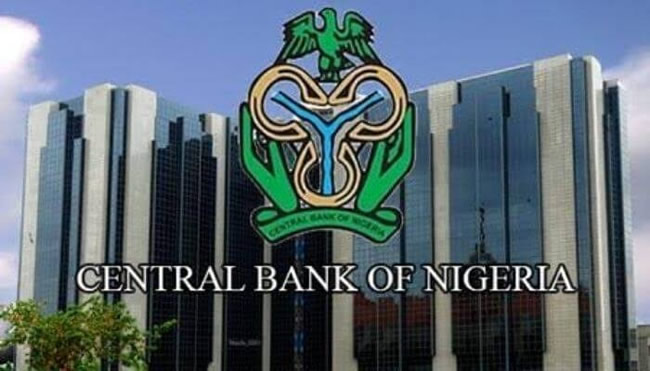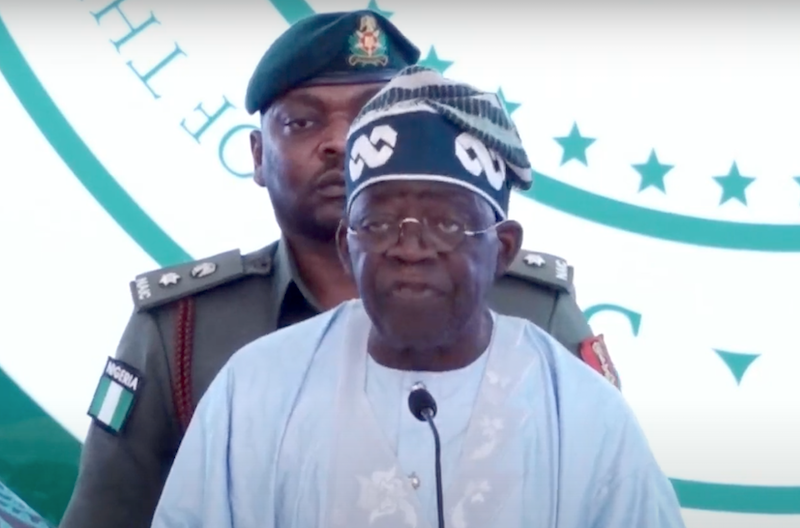A few weeks ago, Nigerians were startled by a legislation that had largely escaped public awareness. This legislation, which has since undergone substantial amendment carries profound implications for the financial health of every Nigerian, sparking widespread controversy.
The law raises several concerns regarding our legislators’ rigour, effort, and dedication to enacting laws. The legislation, which is known as the Cybercrime (Prohibition, Prevention, etc.) (Amendment] 2024 Act. Section 44 (2] (a] of the Act, mandated a levy of 0.5% of all electronic transactions value by businesses specified in the second schedule of the Act, which includes GSM service providers and telecommunication companies, Internet Service Providers, Banks and other financial institutions, Insurance companies and Nigeria Stock Exchange.
To implement this law, the CBN, on the 6th of May 2024, sent a circular to all banks and financial institutions in Nigeria to charge a cybersecurity levy starting from the 20th of May 2024 on electronic transactions by customers, barring a few exemptions. Industry watchers have claimed that the government aimed to earn about N2 trillion per annum, judging by the over N600 trillion values of all such transactions in 2023. This caused an uproar in the country, and most civil society organizations, private sector businesses, labour organizations, and concerned Nigerians used all the media available to them to voice their condemnation of this imprudent law.
The banks and other mandated institutions are to collect the levy and remit it monthly to a designated fund (National Cybersecurity Fund) at the CBN for transmission to the Office of the National Security Adviser (ONSA). The fund’s stated primary purpose is to provide financial resources for fighting cybersecurity crimes in Nigeria.
There are many things wrong with this levy beyond the fact that Nigerians are discontented with government and non-governmental levies and fees plaguing the living light out of them. Some have argued about the interpretation of the law by CBN that the transactions to be charged should be on the businesses mentioned in the Act, not their customers or Nigerians. Others have questioned why this law, created, and signed into law in 2015 by the Jonathan administration, was amended now to include the cybersecurity levy and why the haste to implement it now, especially given the harsh economic conditions occasioned by good-intentioned policies that have had a devastating impact on Nigeria.
The argument on timing is germane given the level of inflation and the devastating degradation of the value of the Naira and, by extension, the purchasing power of Nigerians. Some still argue about the increasing focus of government to use tax as a significant economic policy for revenue generation, especially in an increasingly volatile economic climate where productivity is low, and businesses are shutting down because of increasing cost of doing business, ranging from the cost of labour, energy, and raw materials. My take on this anchor on the morality behind the levy given Nigeria’s social contract with the state, procedural antecedents in institutional revenue collection for government, the burden on Nigerians on financial transaction-related charges, and the imperfections of our legislative processes.
The pertinent question is why should Nigerians who pay personal and business taxes pay for security in whatever guise or nomenclature? Whether cybersecurity, physical security, or any form of security, it is the Nigerian government’s exclusive and primary responsibility, which is why we pay tax to the government. Under the social contract between Nigerians and the state, we accept and give out our rights, especially the right to security of our lives, to the state and expect the state to protect us by whatever means necessary. The state provides the security infrastructure, architecture, and personnel to provide security for all. The government singling out an aspect of security and levying citizens to pay for it is tantamount to double taxation when we already pay income tax and allow the government income from our natural resources to provide this service. Unbundling security and taxing some is a prelude to other security tax forms. Should we expect a Banditry levy, terrorist levy, or armed robbery levy soon?
The second question is, when did the office of the National Security Adviser become a revenue-generating and collecting centre? The Nigerian state has explicit provisions for regulatory agencies or public enterprises that provide public goods and services. The office of the NSA is not such and does not have such a mandate. It is an anomaly procedurally to saddle this office with the mundane task of revenue issues, and as a government unit coordinating security, it should receive its funding from the federal government budget. Enacting and implementing laws that go against established procedures affects the structures and systems of the state and sometimes goes against the mandate on which institutions are created.
The third issue is why the national assembly members were screaming at the top of their voices against this law when the same body amended it. Does it mean that they did not understand the law they passed? Or is it that the law was amended and passed without the knowledge of many members passing through the due processes? Is the interpretation of the law by CBN not in tandem with the intentions of the lawmakers? Is there a problem with framing the law caused by language failure? Did the framers mean online or electronic transfer levy? It would be easier for the public to understand the levy if it had come outright as a transaction levy because many people cannot link their electronic transactions and cyber security levy. Where is the ‘cybersecurity’ in transferring legitimate money? The law does not resonate with many Nigerians of average means and education, and they cannot link their everyday transactions to cybersecurity.
Granted, the legislation enacted by the National Assembly is not perfect. It sometimes has some flaws. They are subject to review, revision, or repeal. Because of this, the law is a living thing that changes with the seasons and the passage of time. Remember, errors are not uncommon when enacting laws. Had Magaji Tambuwal, the then-Clerk of the Nigerian Assembly, been successful in getting President Bola Tinubu to sign a version of the “Real Estate Regulatory Council of Nigeria 2023″—which is regarded as phoney—into law, he would have been inducted into the Hall of Fame. This demonstrates that sometimes, legislation approved and accented to by the president may not always accurately reflect the framers’ intentions. Numerous things occur in between.
The fourth issue is the incongruence of the cybersecurity levy while the Taiwo Oyedele committee is working on the harmonization of multiple taxes, reducing unprogressive taxes and the multiplicity of legislation that imposes taxes on business. Besides, the cybersecurity levy affects citizens’ living wages. We cannot stagnate household income and continuously increase all cost elements of a living wage (housing, transport, utilities, food) through more charges like cybersecurity levy and not increase poverty in the extreme or diminish consumption income in the main.
The last issue is that the burden of bank-related levies and taxes that individuals pay in Nigeria is too much on them. It will be good for researchers to do a comparative study with other developing countries like Nigeria to determine whether we are in this alone. Bank-related levies include transfer fees, card maintenance fees, card issuance charges, stamp duties, VAT on SMS, and SMS charges for the receiver and sender. This cybersecurity levy will be one too many. Imagine the implication on the cost of doing business, especially post-subsidy removal, post-increase in electricity tariff, the collapse of the Naira, hyperinflation and many charges and levies on businesses.
Existing business levies and taxes include Company Income Tax, Stamp Duties, Petroleum Profit Tax, Capital Gains Tax, Value Added Tax, Personal Income Tax, Withholding Tax, Tertiary Education Tax, one per cent of payroll contribution to NSITF, 10 per cent of Payroll Contribution to PenCom; one per cent of Payroll ITF Levy and National Information Development Levy. Others are Radio and TV Licenses; Police Special Trust Fund Tax levy; Niger Delta Development Commission levy; National Agency for Science and Engineering Infrastructure levy; Land Use Charge; Parking Fee; Consumption Tax; Road Tax; Standard Organization of Nigeria fees; Nigeria Content Development levy; NAFDAC levy; Nigeria Health Insurance Authority contribution; Signage Fees. Touts and street urchins are leveraging the multiplicity of taxes and levies to attack businesses. Businesses are getting it rough and do not need another levy straw that will break their backs.
Cybersecurity levy is peculiar to Nigeria and is not applicable in many developing and developed countries of the world. President Bola Ahmed Tinubu acted well in suspending the cybersecurity levy; many Nigerians are happy about that. There are many reasons to repeal this law or quickly review it with broad-based consultations.





